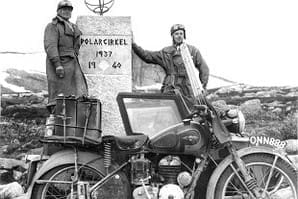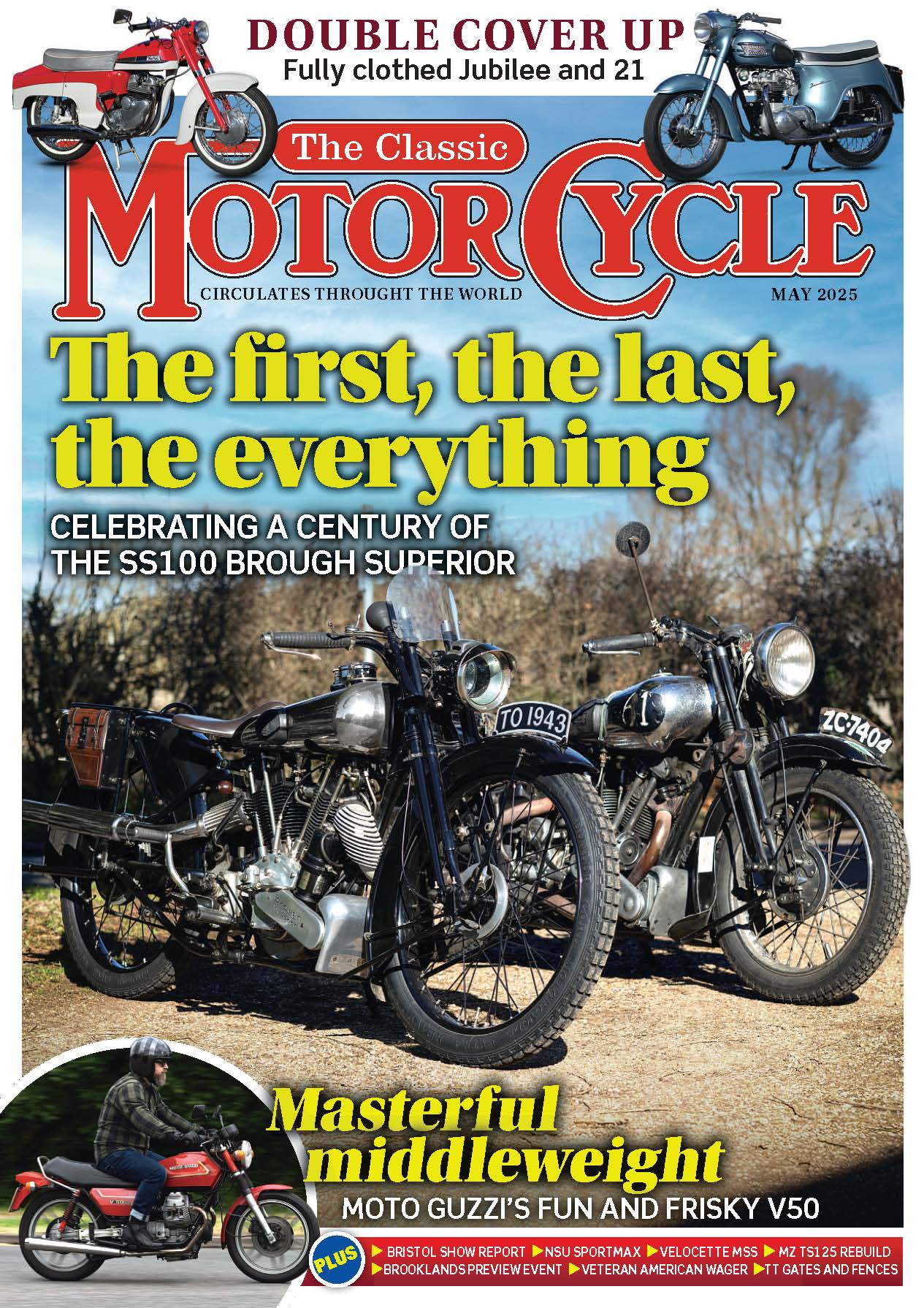
The year was 1953 and their quest was to reach the Arctic Circle, which they attempted to do via Norway. Their machine was a Villiers-engined James Captain. As a 197cc lightweight, the Captain may not have been the most obvious choice of machine to pair with a sidecar, especially with the added challenges presented by the icy roads and mountainous terrain, but the little James outfit proved to be as plucky as any heavyweight and just as durable.
This photograph marks the end of their adventure as they stand on the border of the Arctic Circle, some 2300ft above sea level. Their adventure through the rugged wilds and frigid tundra of Norway provided plenty of excitement and scenery every bit as beautiful as the Mediterranean south.
Enjoy more Classic MotorCycle reading in the monthly magazine.
Click here to subscribe & save.
The first stages of their journey through Norway began in heavily wooded hill country. In his own account of the trip, Kevin paints a picture of a place where a rustic aesthetic and a more modern one coexisted quite harmoniously – the juxtaposition of timber-built cabins, complete with stacks of firewood, against the occasional hydroelectric power station must’ve been interesting to behold.
For the intrepid motorcyclists to reach their goal they first had to navigate through the Lukttind mountain range.
This was not as arduous as it sounds, however. The road through the mountains was clearly marked and the ascent was consistently steady, even though the mountain range peaked at 4000ft.
Kevin recounts that for 12 miles the tenacious little sidecar outfit was climbing continuously and the Villiers engine bravely powered along in second gear, managing the strain very well – though it did get very hot! The road through the mountains crossed into the Arctic Circle at roughly 2300ft, and so the duo carried on.
Their journey was interspersed with various points of interest, and stunning scenery. The Stodi plateau stands out as a particularly striking landscape, the beauty of which was only matched by the innate harshness of it. Battered trees and broken timber pockmarked the vista for as far as the eye could see, which was not terribly far, as it transpired, as a veil of grey mist blanketed the plateau – only the tallest mountains loomed imperiously out of the fog.
As they approached their goal, evidence of wartime occupation became more and more frequent. The abandoned Polarcirkel Barracks were certainly worthy of some exploration, and provided a good opportunity for the James to have a brief respite. Half a dozen miles further down the mountain road, they encountered an old German steel helmet lying at the side of the road.
The James sidecar outfit performed admirably throughout the whole tour, needing no serious mechanical attention except for half a dozen spark plug changes. The only real disadvantage to a tour of Norway in the 1950s, in the opinion of Kevin Gover, was the prices of the various boats and ferries required to reach Norway in the first place. Other advice proffered by Mr Gover included a friendly warning that, if your intention is to attach a sidecar to a lightweight, it is essential that the aforementioned lightweight has good brakes. And he’d have surely known all about that, after his experiences. ![]()
Advert
 Enjoy more The Classic MotorCycle reading in the monthly magazine. Click here to subscribe.
Enjoy more The Classic MotorCycle reading in the monthly magazine. Click here to subscribe.



